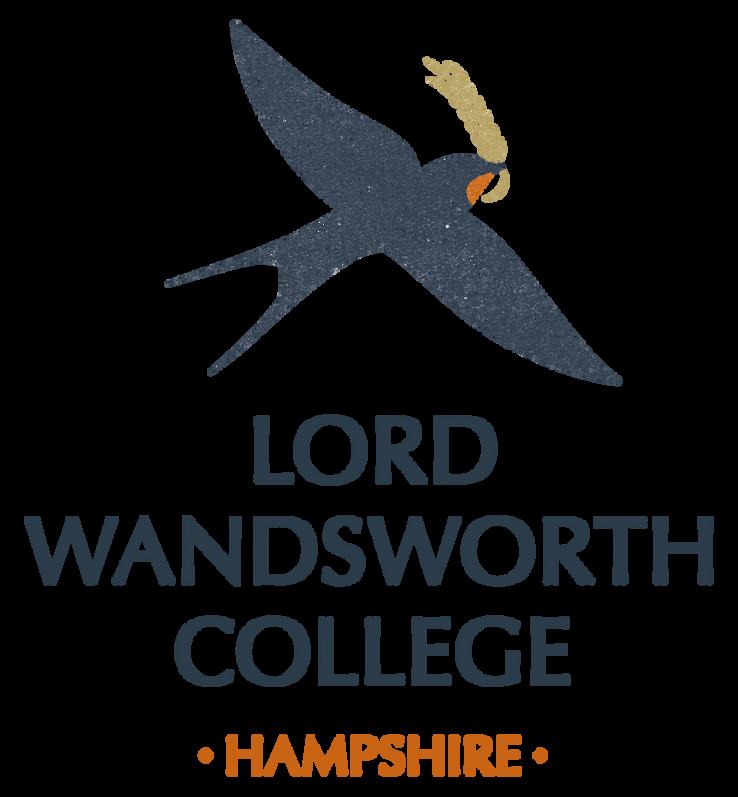
G C S E G U I D E 2025 / 2026






G C S E G U I D E 2025 / 2026




Your GCSE years are an important stage in your journey at LWC - an opportunity to build on your strengths, explore new interests, and lay the foundations for the years ahead. Rather than seeing this as a moment of restriction, we encourage you to think of it as shaping your own pathway, one that leads not just to exams but to the experiences, skills, and knowledge that will prepare you for life beyond school.
Picture yourself in the Sixth Form, surrounded by peers who are inspired, ambitious, and engaged in subjects they love. Many of them once stood where you are now, making choices about their GCSEs, and they will tell you that what matters most is not just what you choose, but why you choose it. What excites you? What challenges you? What subjects spark new ideas? Thinking beyond the next two years will help you make choices that not only play to your strengths but also keep your options open.
At LWC, we believe education is about more than just results. Our GCSE programme is designed to develop independent thinkers, problem solvers, and adaptable learners who are ready for the challenges of an ever-changing world. Academic achievement is important, but just as valuable is the confidence, curiosity, and resilience you will build along the way.
As you consider your options, take the time to explore, ask questions, and seek advice. Whether you have a clear direction in mind or are still discovering your interests, this is your opportunity to shape a future that excites and motivates you. With the right choices and an open mind, your GCSE years will be just the beginning of a much bigger journey.
Angela Watson Deputy Head Teacher - Academic
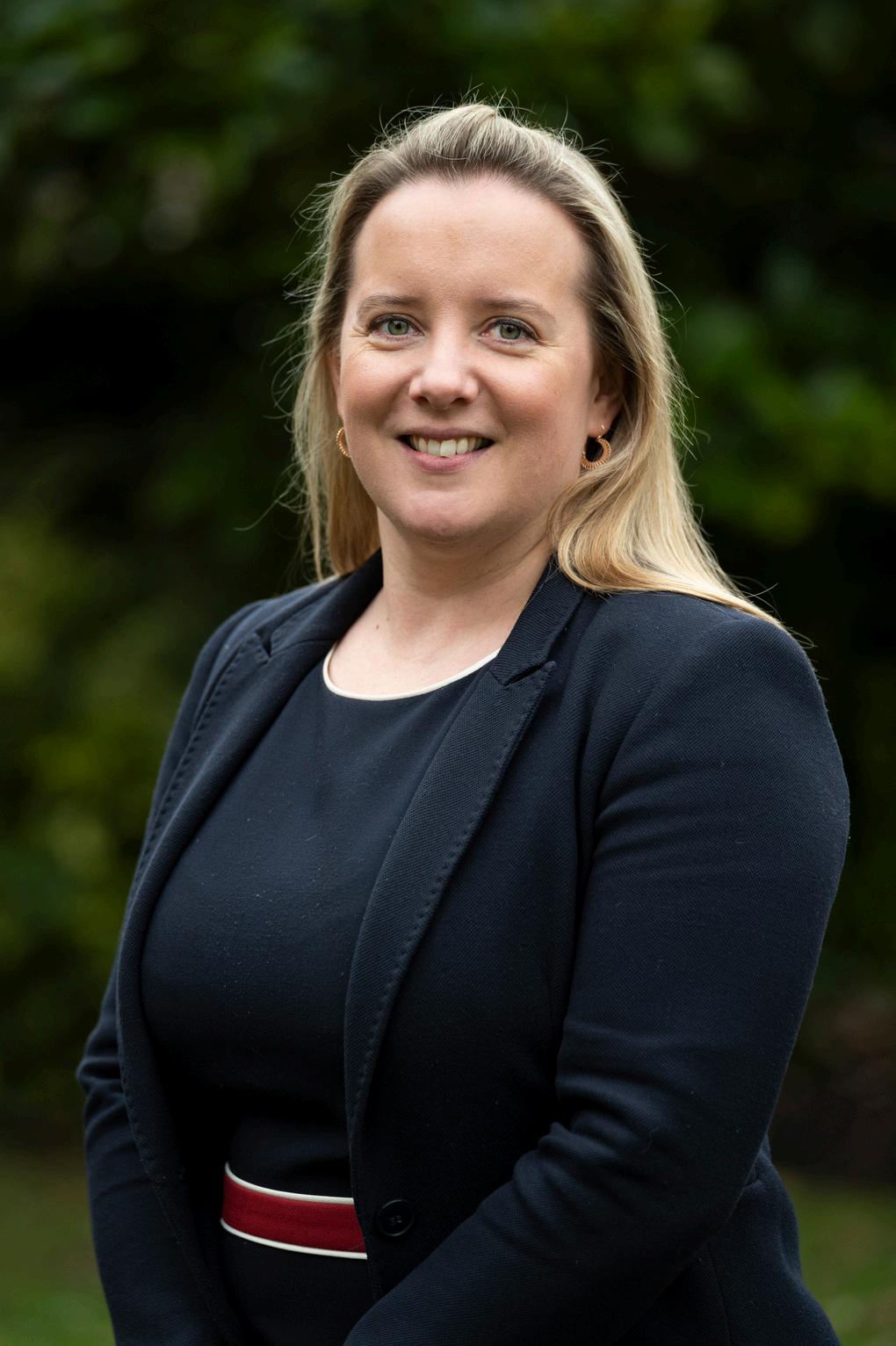

At LWC, pupils are encouraged to stretch and challenge themselves and to start planning their journey through school and beyond from this point in 3rd Form. In assemblies, I often cite Carl Rogers’ most famous quote: “What you are to be, you are now becoming”. For most, your time at LWC will be followed by a university or higher education course but for an increasing number, degree apprenticeships, school leaver programmes and the world of work are an even more attractive prospect. As a result, we work hard to provide you with a programme of PSHEE and futures events that will you to find your own path. During the GCSE years, you will be introduced by tutors and Heads of Year to Unifrog – an online platform that supports a wide range of opportunities available to you before and after leaving school. You will also be given the opportunity to sit an aptitude assessment, which gives parents, pupils, and teachers the clearest indication of where your innate interests and abilities could lead. This is obviously useful when choosing GCSE and Sixth Form subjects but one must also be mindful of the implications for future career possibilities.
When choosing options, the decision for some w be reasonably straightforward. To many though decision will only be arrived at after much care consideration; the views of subject teachers wil of particular importance and both AtoL grades a summative test results can serve as useful pointe More often than not, you will not have a firm id about pathways you might like to pursue so it is vitally important that a breadth of subjects be maintained within the options available. For oth who aspire to be doctors, vets or engineers, the a more clearly defined route. However, the best advice I can offer you when it comes to choosin subjects is to do what you most enjoy. If you ar excited to learn, you are far more likely to inves the time and energy required to be successful.
Throughout your time at LWC, you will receive comprehensive careers information and advice. The aim of the Futures Programme is to increase your awareness of the opportunities available an to guide them to make informed decisions abou your options. This is achieved through the aforementioned PSHEE and tutor sessions but al through informal discussions, personal counsell visiting speakers, the annual LWC Futures Fair a most importantly, through discussions with tuto you have any questions or I can be of any furthe help, please do not hesitate to contact me – my office is in the stunning new Sixth Form Centre, Zanetas.

Throughout the school, you will have access to accurate up-to-date careers guidance that is presented impartially and enables you to make informed choices about a broad range of options and helps to encourage you to explore your potential. The guidance is delivered through PSHEE, small group work, one-to-one support and visiting speakers. The Futures Programme enables you to recognise your strengths and gives you the confidence to explore all the options available to you post-LWC.
Our programme of support starts in 3rd Form with a dedicated Futures Day designed to encourage pupils to start thinking about skills and the transferability of subjects in the real world. This day also assists pupils in making choices for their GCSE options. In 4th Form, you will attend another Futures Day designed to allow you to explore industries and examine how combinations of A Levels can be used for entry to degree courses Futures Day events are always followed by a series of short talks in tutor time, delivered by the Head of Futures, designed to consolidate lessons learnt and plan next steps
During the 5th Form, you’ll be given the opport to complete a psychometric test and receive im careers advice, attend a bespoke interview skill morning as well participating in industry-specifi round tables. All of which are designed to enco you to start thinking about possible pathways an what qualifications you would like to study in S Form. At the heart of the Futures provision is the ethos of creating confident young people who h been given the skills and agility to make inform decisions for themselves about your future By empowering you, we ensure you are equipped t flexible, resilient and can cope with the everchanging landscape of skills and employment
Tom Rimmer Head of Sixth Form
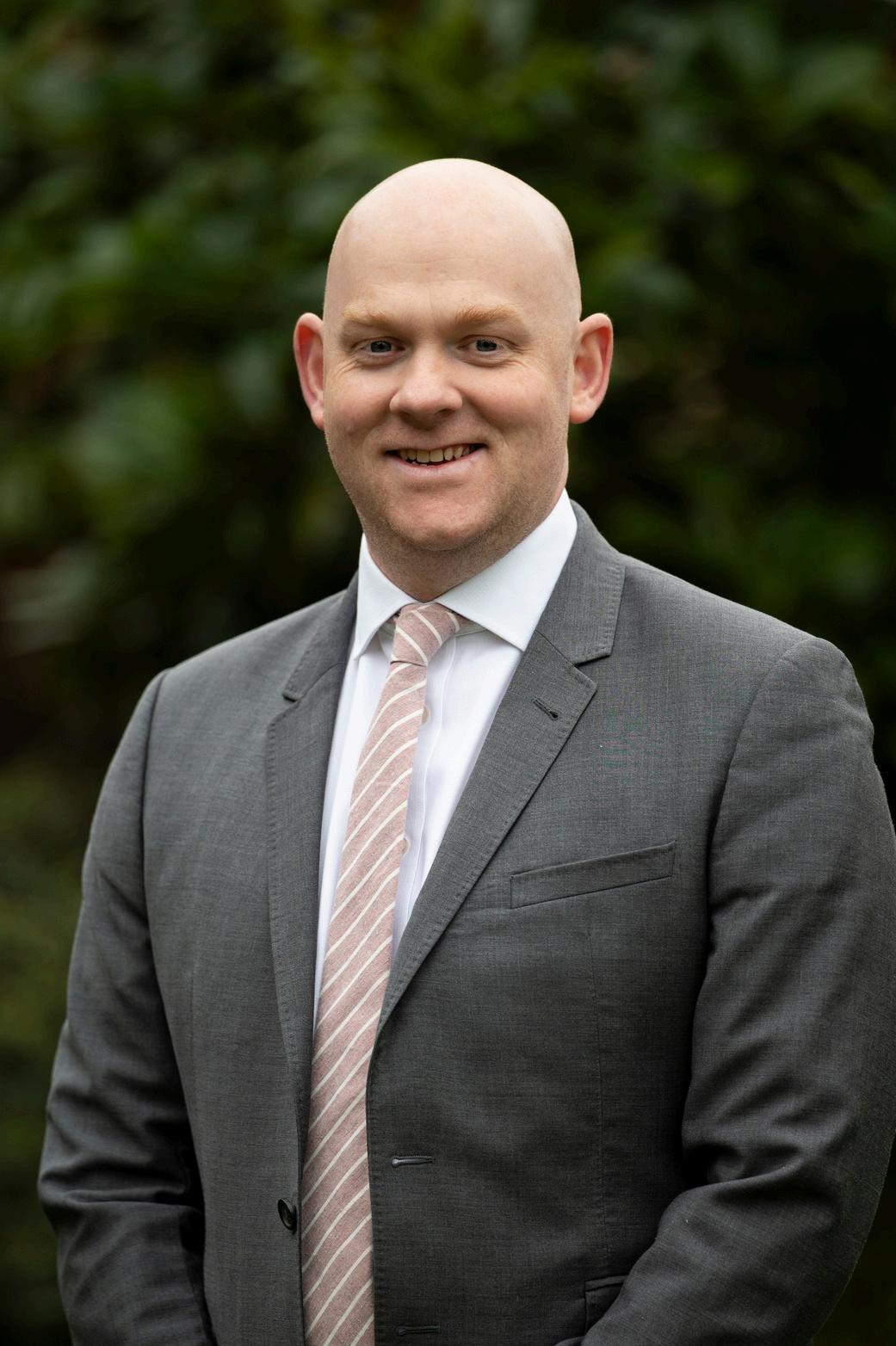


You will get lots of support from your teachers, but having a passion for a subject really helps, so choose subjects you think you will enjoy. Review the subject content closely in this booklet and talk to the teachers in the subject areas for further advice.
Choose subjects which you think you will be good atyou will be more likely to enjoy them. Think about why you might enjoy particular subjects and how committed you feel – e.g. drama: have you enjoyed performing previously? Do you like working collaboratively? Are you committed enough to rehearse for GCSE performance work in the evenings and maybe at weekends? Remember that creative subjects, whilst very rewarding, require commitment in terms of time.
Think seriously about future ambitions. If you do already have a university course in mind, check the entry requirements for specific courses at university and work back from there. These are featured at the end of this booklet. Pupils thinking about medicine should consider taking Triple Science, but do check with the Science Department as they have great experience with medic applications, and Double Science will suffice for some university applications.
If you have no idea what you want to do in the future make sure that your options provide a broad and balanced programme. Look at your choices from a distance. Write down your list of subjects and look at it as a future employer or university admissions officer might.
Don’t choose on the basis of what friends are doing or on the basis of favourite teachers. Make your own decisions independently. Be bold and carve your path.


After 3rd Form, all pupils continue with one Humanities subject (Geography, History, Latin, Religion & Philosophy) In addition pupils choose between Combined Science (2 GCSEs) or 3 separate Science GCSEs Combined scientists can keep 4 of the options from 3rd Form. Separate scientists keep only 3 of the options from 3rd Form. Languages are strongly encouraged at GCSE and are counted within the 3 or 4 option subjects.
The subject blocks are based on pupils interests and uptake from 2nd into 3rd Form. Subjects appear in more than one option block in order to facilitate as many combinations of subjects as possible. Choices should be discussed with tutors, teachers and parents Please note that GCSE optional subjects are available subject to demand
Choose your Humanities subject:
Geography, History, Latin, Religion & Philosophy. This must be a subject you studied in 3rd Form.
Choose your Sciences route: Combined Science (2 GCSEs) 3 Separate Sciences
Choose your 4 options (if you chose Combined Science) or choose 3 options (if you chose Separate Sciences). Do not select the subjects already selected on the left.
Art – 3D Design Art – Fine Art Computer
Science Design – Resistant Materials, Drama, French, Geography, History, Latin, Music, Photography, Physical Education, Religion & Philosophy, Spanish and Textiles

Why study this subject?
English is about more than just reading and writing - it’s about understanding and expressing ideas with confidence Studying English at LWC will help you develop critical thinking skills, creativity, and a deeper appreciation of literature that has shaped the world. Whether you enjoy debating themes in classic novels, crafting compelling stories, or analysing persuasive speeches, English offers something for everyone.
Despite the inevitable emphasis on marks and grades, English in 4th and 5th Forms should be an enjoyable experience, a chance for pupils to read a wide range of literature under the guidance of their teachers and to experiment with their own writing. As noted, there will be opportunities for pupils to take part in drama, debating, Literary Society meetings, theatre trips, creative writing competitions and journalism.
The GCSE course may lead pupils to A Level English and ever-expanding vistas of thought and human experience – or it may be the last time their own language and its literature are studied. With hard work and a desire to learn, pupils will come out of the course more able to enjoy books, write creatively and speak effectively.
EXAM BOARDS:
ENGLISH LANGUAGE – EDEXCEL IGCSE (4EB1)
ENGLISH LITERATURE – EDEXCEL IGCSE (4ET1)
What we study at GCSE?
Our pupils are entered for IGCSE examinations in English Language and the top six (out of seven) sets for IGCSE English Literature. 4th Form pupils are placed in sets in order to allow teachers, as far as possible, to address specific needs. All pupils cover work of a similar standard.
There is a literary component to the Edexcel IGCSE English Language course and pupils will study a range of literary texts for that IGCSE.
English Language: Close reading, analytical writing, and creative expression.
English Literature: In-depth study of poetry, Shakespeare, modern drama, and classic novels. Exposure to a range of viewpoints and writing styles to develop a sophisticated written and verbal response.
How is it examined?
English Language: One 3-hour examination in the October of the 5th Form, covering reading and writing skills.
English Literature: Coursework (40%) and an examination (60%), requiring students to demonstrate knowledge of set texts and unseen poetry




Why study this subject?
Science is about asking questions, exploring the unknown, and understanding the world around us. Whether you want to work in medicine, engineering, environmental science, or simply have a passion for discovery, Science at LWC provides a hands-on and engaging experience.
In 3rd Form, pupils study foundation courses in Biology, Chemistry, and Physics [HW1] . In 4th Form all pupils continue to study all three sciences but pupils can choose between the Triple Science Award (three GCSEs) or the Combined Science Award (two GCSEs). Both options provide a strong foundation for A Level study, and pupils taking the combined award receive two adjacent grades in Combined Science (e.g. 9-9 or 9-8) [HW2]. Triple Science includes extra content to enhance knowledge and practical skills, but is not required for A Level entry.
Pupils can enter at Higher or Foundation tier. Practical skills are assessed within the written exams, with no separate coursework.
What we study at GCSE?
Biology: Cell biology, genetics, disease and ecosystems.
Chemistry: Atomic structure, bonding, reactions and organic chemistry.
Physics: Forces, energy, waves, electromagnetism, (and space physics - triple only) [HW3]
How is it examined?
Six written papers (Triple Science: 1h 45m each, Combined Science: 1h 15m each).
Practical skills integrated into assessments.


F
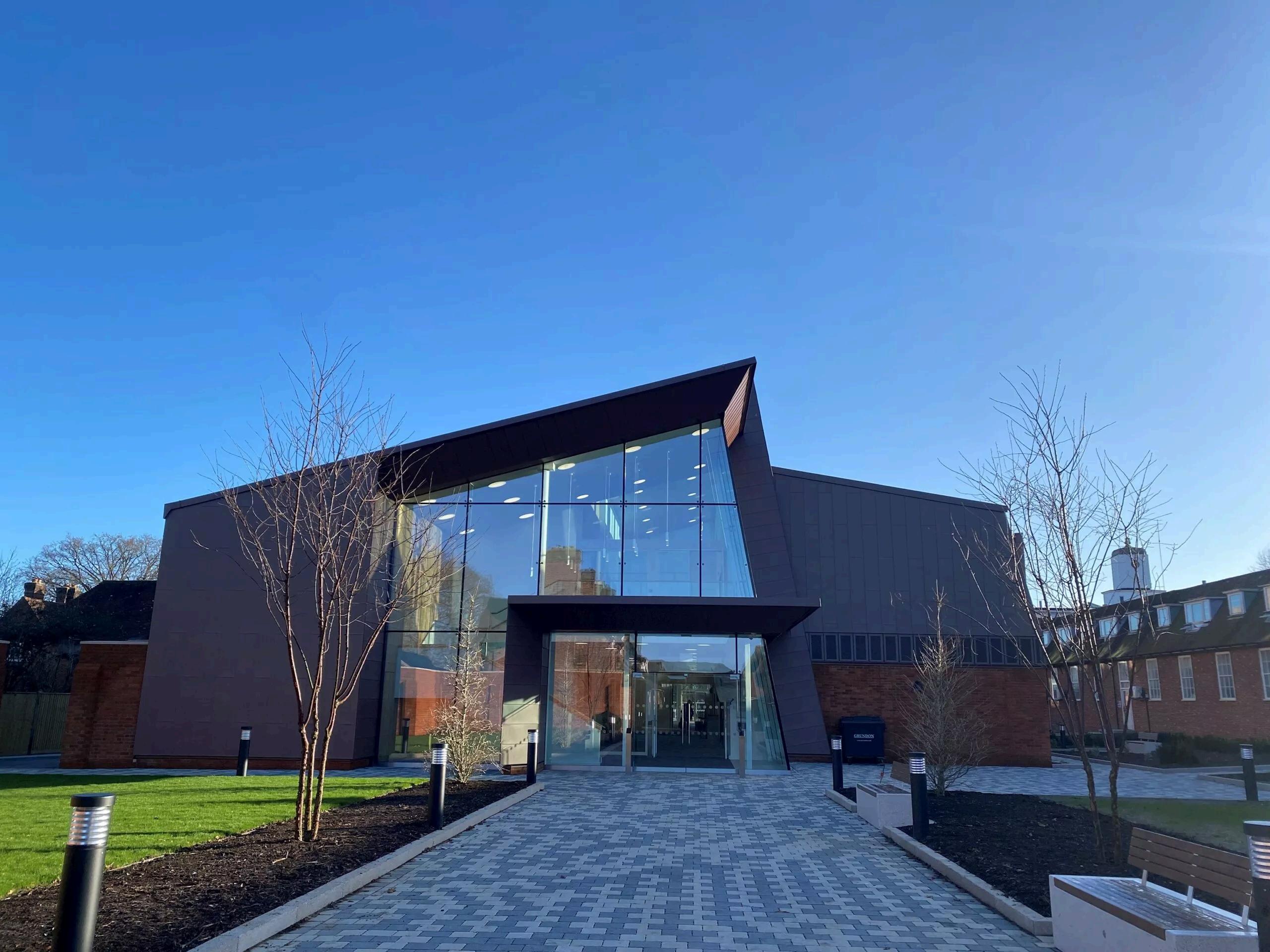
BIOLOGY EXAM BOARD:
AQA GCSE BIOLOGY (8461) & AQA GCSE
COMBINED SCIENCE: TRILOGY (8464)
CHEMISTRY EXAM BOARD: AQA GCSE CHEMISTRY (8462) & AQA GCSE COMBINED SCIENCE: TRILOGY (8464)


WhatWeStudy:
Physicsexplainshowtheuniverseworks,fromthe smallestparticlestovastgalaxies.Pupilsexploreforces, electricity,waves,energyandthestructureofmatter. Practicalapplicationsrangefromelectromagnetismand spacesciencetonuclearphysicsandthelatest developmentsinrenewableenergy.
Akeypartofthecourseislearningtothinkscientifically -breakingdownproblems,testingideas,andanalysing results Pupilsalsodeveloppracticalskills,suchas wiringathree-pinplugandmeasuringmotionwithlight gates
Physicsisessentialforcareersinengineering, computing,roboticsandrenewableenergy Itisthe foundationofcutting-edgetechnology,fromspace explorationtoartificialintelligence.Physicspupils developlogicalthinkingandproblem-solvingskillsthat arehighlyvaluedinmanyfields,fromfinanceto architecture.
PHYSICS EXAM BOARD:
AQA GCSE PHYSICS (8463) & AQA GCSE COMBINED SCIENCE: TRILOGY (8464)
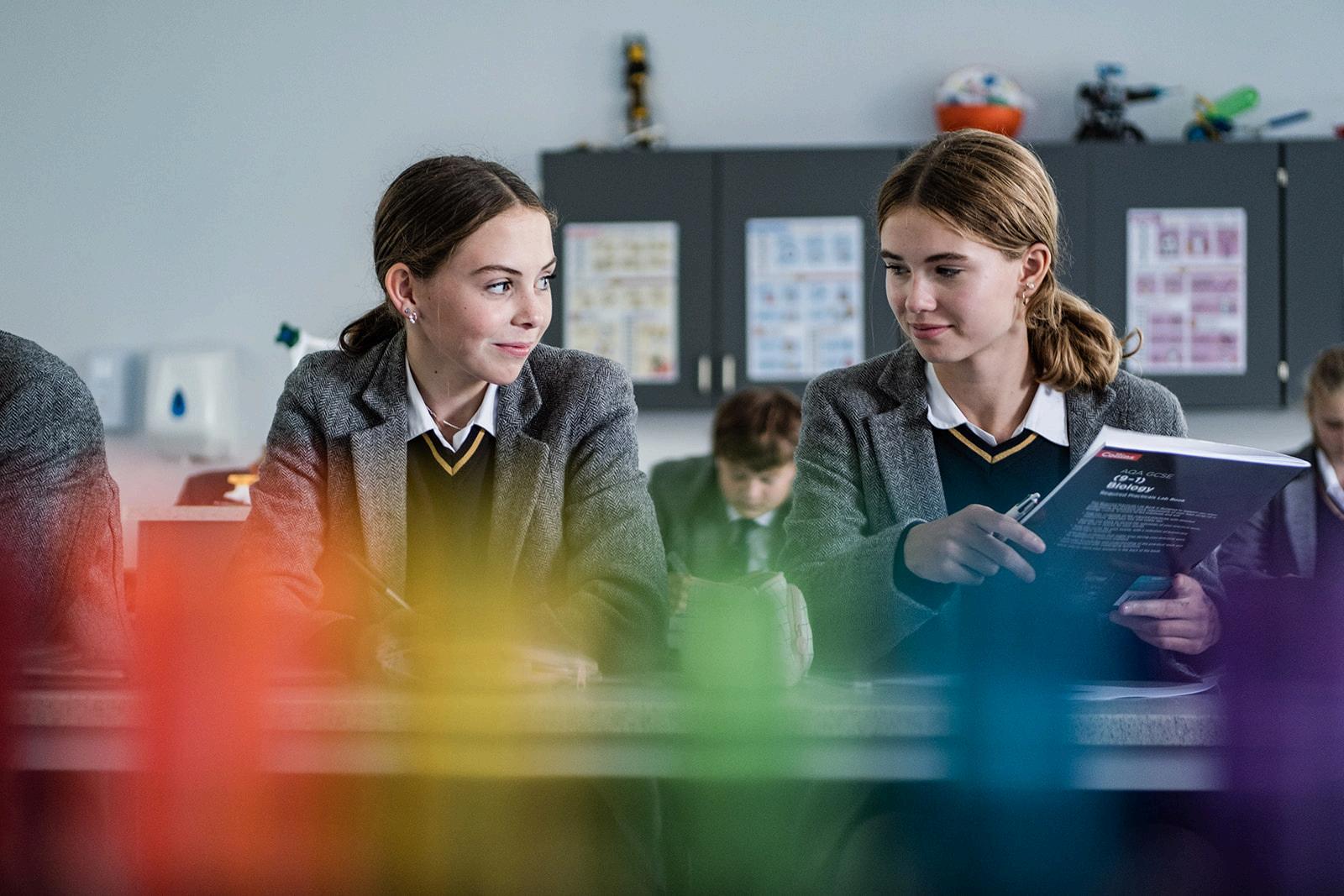


EXAM BOARD: OCR
Creativity underpins everything we have done in the past and everything we will do in the future. We believe everyone is creative and we try to find a way in which that skill can be captured and fostered. The studios are lively, friendly but serious place to work, develop key learning and enquiring character traits. Creative thinking fits well with any curriculum or career pathway. Art and Design foster and encourage direct personal expression, imagination, sensitivity, conceptual thinking, powers of observation, analytical abilities and practical attitudes.
Direct experience of practical skills and theoretical studies leads to a fuller understanding of the part played by visualarts, including design,graphics and crafts.It widens cultural horizons and enriches our personal resources. As a result, particular enjoyment and aesthetic pleasures are experienced, and selfconfidence engendered.
It is possiblefor an able artist to take both Fine Art and 3D Design at GCSE if their skills and interests lie in taking a creative-based programme.
Pupils choose between two specialist pathways: Fine Art 3-Dimentional Design
In Fine Art, pupils can submit work from a wide range of media. For example: painting, drawing, print making, textiles and sculpture, or constructing, installation, mixed media, graphics, illustration, film and photography.
The course begins broadly, introducing a variety of creative approaches and stimulating critical awareness, narrowing to the required focused portfolio of work.
Component 1 - Portfolio of Controlled Assessment – research/preparation work and final piece (60%)
Component 2 – Externally set assignment (Examination) - preparation work and final piece (40%)
Both components are centre based marked/assessed and externally moderated.


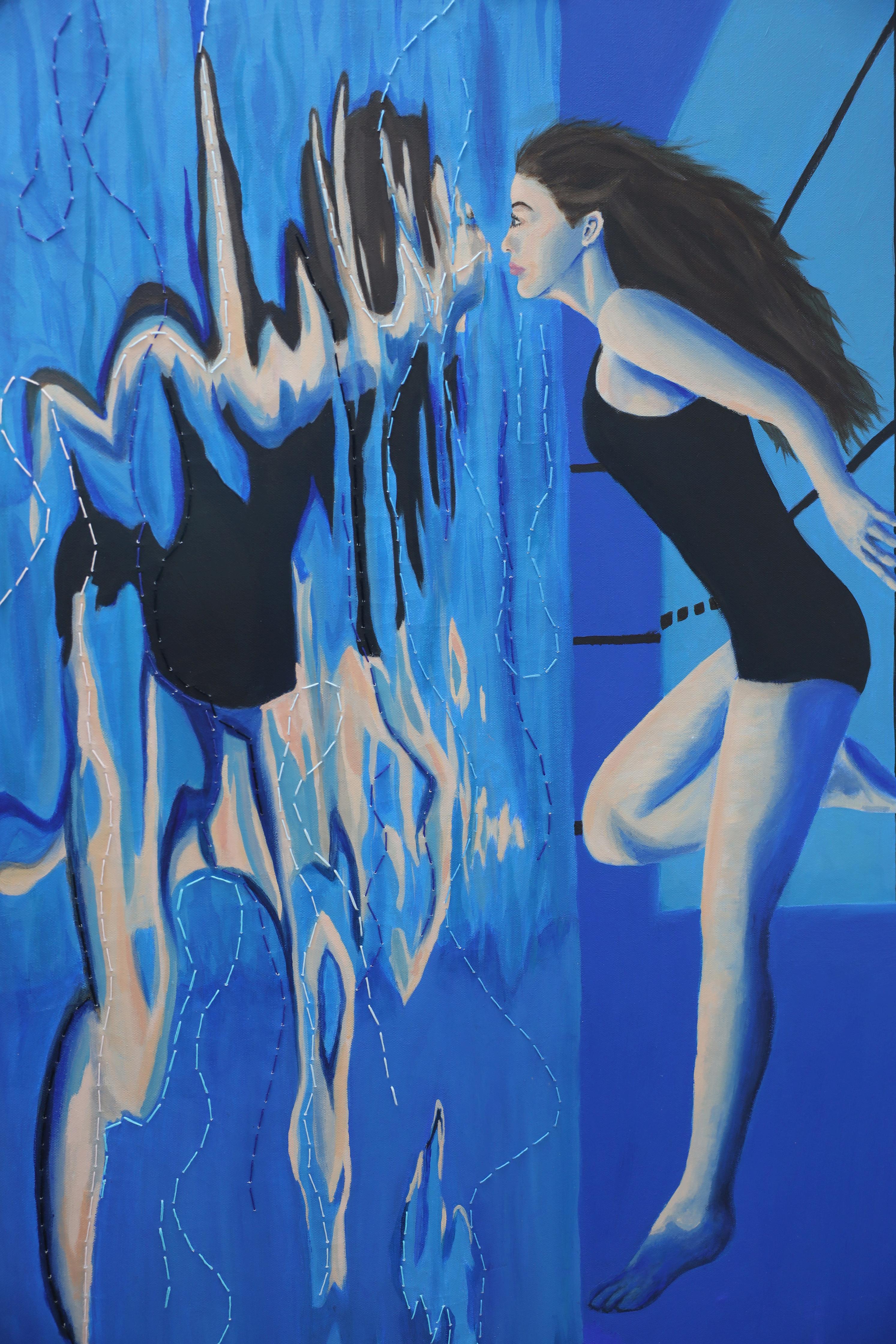
The course gives students direct engagement with both practical skills and theoretical studies fosters a deeper understanding of the role of visual arts and disciplines such as architecture. This broadens cultural horizons and enriches personal resources, leading to a heightened appreciation of aesthetic experiences and the development of self-confidence. It also cultivates key learning attributes and an inquisitive mindset. Creative thinking, nurtured through the arts, complements any curriculum or career pathway.
The course begins broadly, introducing a variety of creative approaches and stimulating critical awareness, narrowing to the required focused portfolio of work.
Component 1 - Portfolio of Controlled Assessment – research/ preparation work and final piece (60%)
Component 2 – Externally set assignment (Examination) - preparation work and final piece (40%)
Unit 1: A portfolio of research, experiments and final outcomes (60%).
Unit 2: An externally set practical exam, leading to a final piece (40%).
In 3-Dimensional Design, pupils submit ceramic and sculptural related work. However, there is some opportunity to use other materials and skills, including textiles, relief printing, casting and wire, wood or combined installation pieces as well as exploring other craft related skills.



Computer Science equips students with essential skills for the digital world, including programming, problemsolving and logical thinking. It is ideal for those curious about how computers work, how data is processed, and how emerging technologies shape our future. The course develops technical abilities, encourages creativity, and prepares students for careers in technology, engineering, cybersecurity and software development.
What You Study at GCSE
The course is divided into two main areas:
Paper 1: Computer systems – covers systems architecture, networks, cybersecurity, data storage and ethical computing issues. Pupils learn how computers process and communicate information securely in a connected world.
Paper 2: Computational thinking, programming, and algorithms – focuses on coding skills, problemsolving and software development. Pupils write, test and debug their own programs while applying logical thinking to real-world challenges.
Paper 1 (50%) – Written exam assessing theoretical knowledge of computer systems, networks and cybersecurity.
Paper 2 (50%) – Written exam testing programming skills, algorithms and computational thinking Pupils develop and analyse code during the course but are assessed through a written paper rather than coursework.
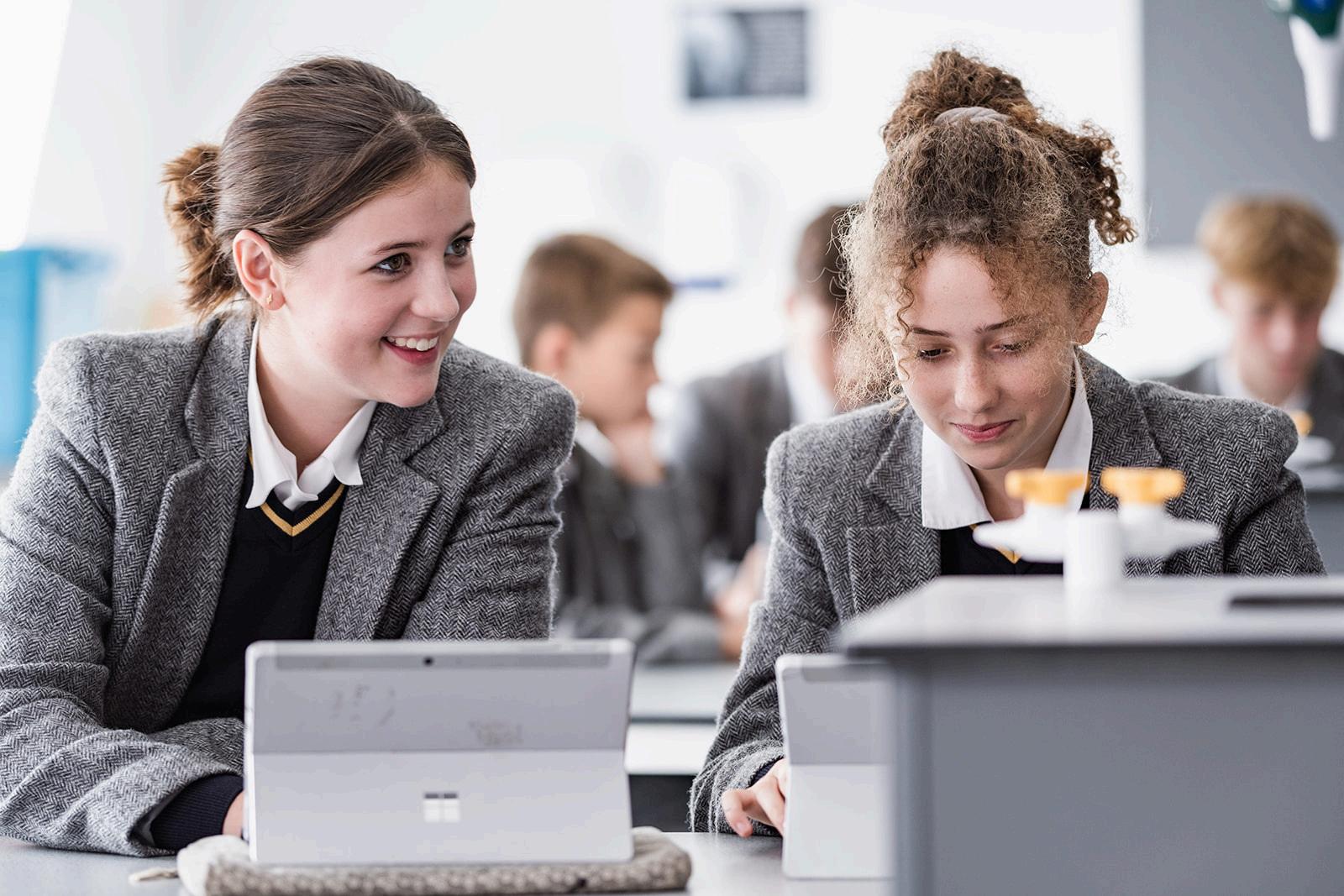



EXAM BOARD: EDEXCEL
Drama is a practical and dynamic subject that allows students to express themselves creatively while developing essential skills in communication, teamwork and self-confidence. It provides a fun, engaging, and collaborative learning environment where students explore performance, directing and theatre design.
What Will I do at GCSE?
In Drama, you will have the opportunity to develop as an actor, director and designer, taking on different roles in both performance and production. You will create and stage performances, working with scripts and devising original pieces. Alongside acting, you will explore key aspects of theatre design, including set, costume, props, lighting and sound.
Collaboration is at the heart of the course, helping you to build teamwork, communication, and creative thinking skills. You will also learn how to analyse and evaluate theatre, both in your own work and by studying professional productions. Through exploring different theatre styles, themes and ideas, you will gain insight into the techniques of influential practitioners.
Watching live theatre is a key part of the course, allowing you to develop your ability to write critical responses and reflect on different performance styles. Throughout the course, you will also build confidence and presentation skills, preparing you for further study and a range of future careers.
Devised Performance & Portfolio (40%) – Create and develop an original drama piece, supported by a written or verbal portfolio.
Performance from Script (20%) – Perform two scripted extracts, assessed by an external examiner.
Written Exam (40%) – Exploration of a set play and evaluation of live theatre.


French is one of the world’s most widely spoken languages, used as a first or second language in over 40 countries. It is also a key language in business, technology and international relations, with France being a leader in aerospace, biotechnology and engineering. Speaking French opens many doors, from travel and culture to career opportunities. It is the second most taught language after English and remains a valuable skill for future study and employment.
At LWC, we place great emphasis on communication and confidence in spoken and written French. Our pupils benefit from one-to-one or group sessions with our French assistant, access to online learning resources, and exposure to French cinema through weekly film screenings.
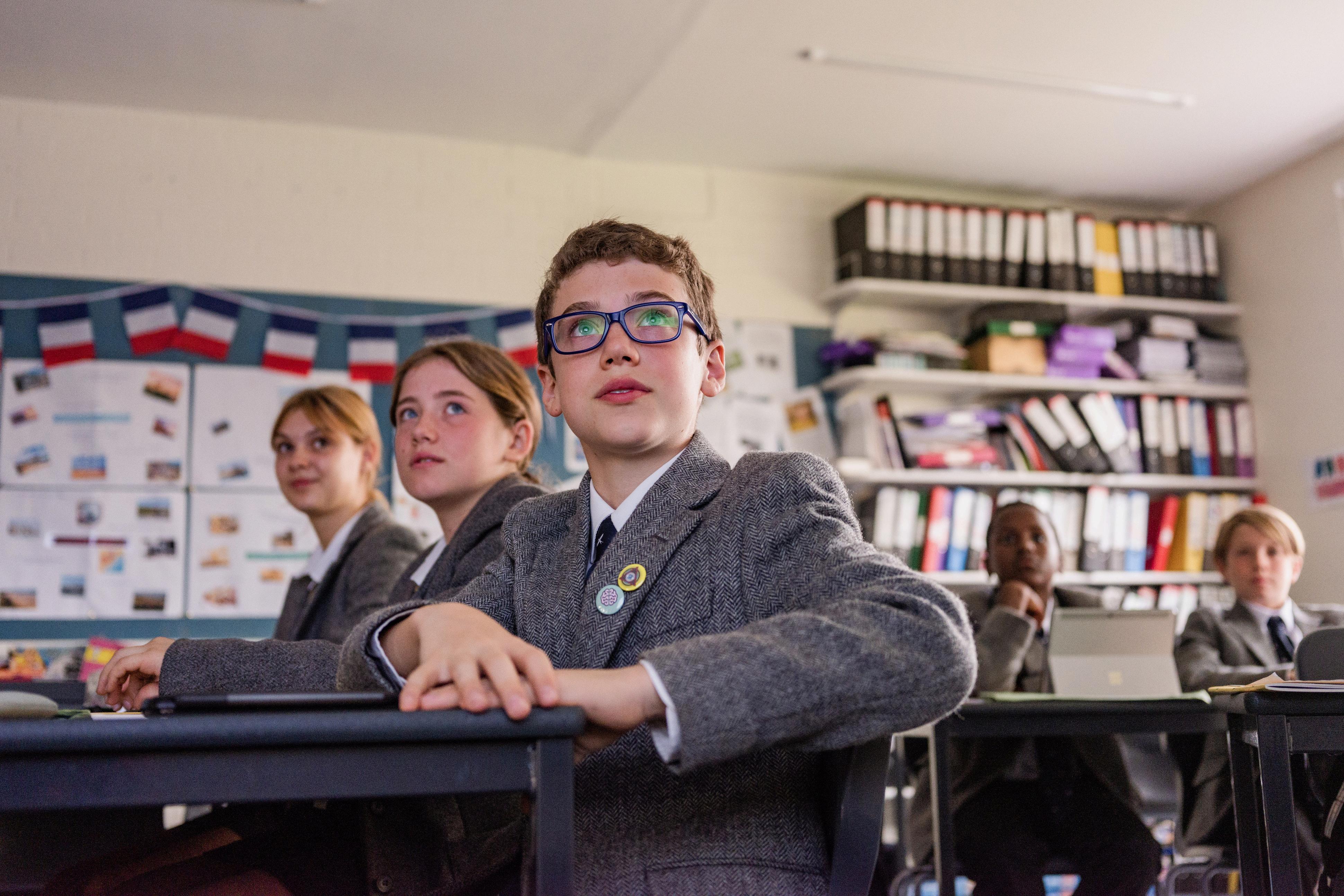
What Will You Study at GCSE?
Pupils will develop comprehension and communication skills, learning to express themselves fluently in both spoken and written French. The course covers a broad range of topics, building vocabulary and deepening understanding of French grammar and structure Pupils will also gain cultural insights into French-speaking countries, enhancing their global awareness.
The Edexcel GCSE French course is assessed through four equally weighted exams at the end of 5th Form:
Listening – Understanding spoken French
Speaking – Communicating confidently in conversations and presentations
Reading – Comprehending written texts
Writing – Expressing ideas clearly and accurately
There is no controlled assessment, and all exams take place at the end of the course


Geography is the most popular GCSE subject at LWC and for good reason. It helps you make sense of the world by tackling real-world challenges, from climate change and natural disasters to global trade and sustainable cities. If you have a naturally curious mind and enjoy engaging with contemporary issues, this subject is the perfect choice. Studying Geography develops critical thinking, problem-solving and analytical skills, helping you understand different perspectives and the forces shaping our planet. At LWC, our approach to Geography is all about Widening Your World broadening your horizons, deepening your understanding of global issues and equipping you with skills that extend far beyond the classroom.
Your Geography GCSE is divided into two key areas: Physical Geography and Human Geography.
Paper 1: Physical Geography (40%) – 1h 10m
Coastal Environments
Natural Hazards
Paper 2: Human Geography (60%) – 1h 45m
Urban Environments
Economic Activity & Energy
Globalisation & Development

Your learning will be assessed through two written exams at the end of the course. These include:
Questions requiring knowledge of real-world geographical challenges.
Fieldwork-based questions, where you will apply first-hand investigation and analysis skills.
Fieldwork is a mandatory and exciting part of the Geography GCSE, allowing you to apply what you have learned in a real-world setting. As part of the course, all pupils take part in a three-day residential trip to the Nettlecombe Field Studies Centre in Somerset, where they investigate:
Coastal Management – Examining how erosion and flooding are controlled.
Urban Regeneration – Exploring how towns adapt to economic and social change
Tourism Impacts – Assessing how visitors shape local communities and environments.
At LWC, we believe Geography is best learned through experience, whether through real-world data collection on fieldwork trips, debating global issues, or exploring diverse landscapes.
EXAM BOARD: AQA
History is more than just learning about the past - it teaches you how to think critically, analyse evidence and construct logical arguments.
It helps you develop enquiry skills, understand cause and effect, and engage in meaningful debate. Studying history enhances literacy and supports subjects like English, Classics and Geography, while also providing a refreshing contrast for students who enjoy STEM subjects.
The ability to evaluate sources, form reasoned opinions, and articulate ideas clearly makes history a valuable subject for a wide range of future studies and careers. The department run history trips to Auschwitz, Prague and Berlin which are all open to GCSE students.
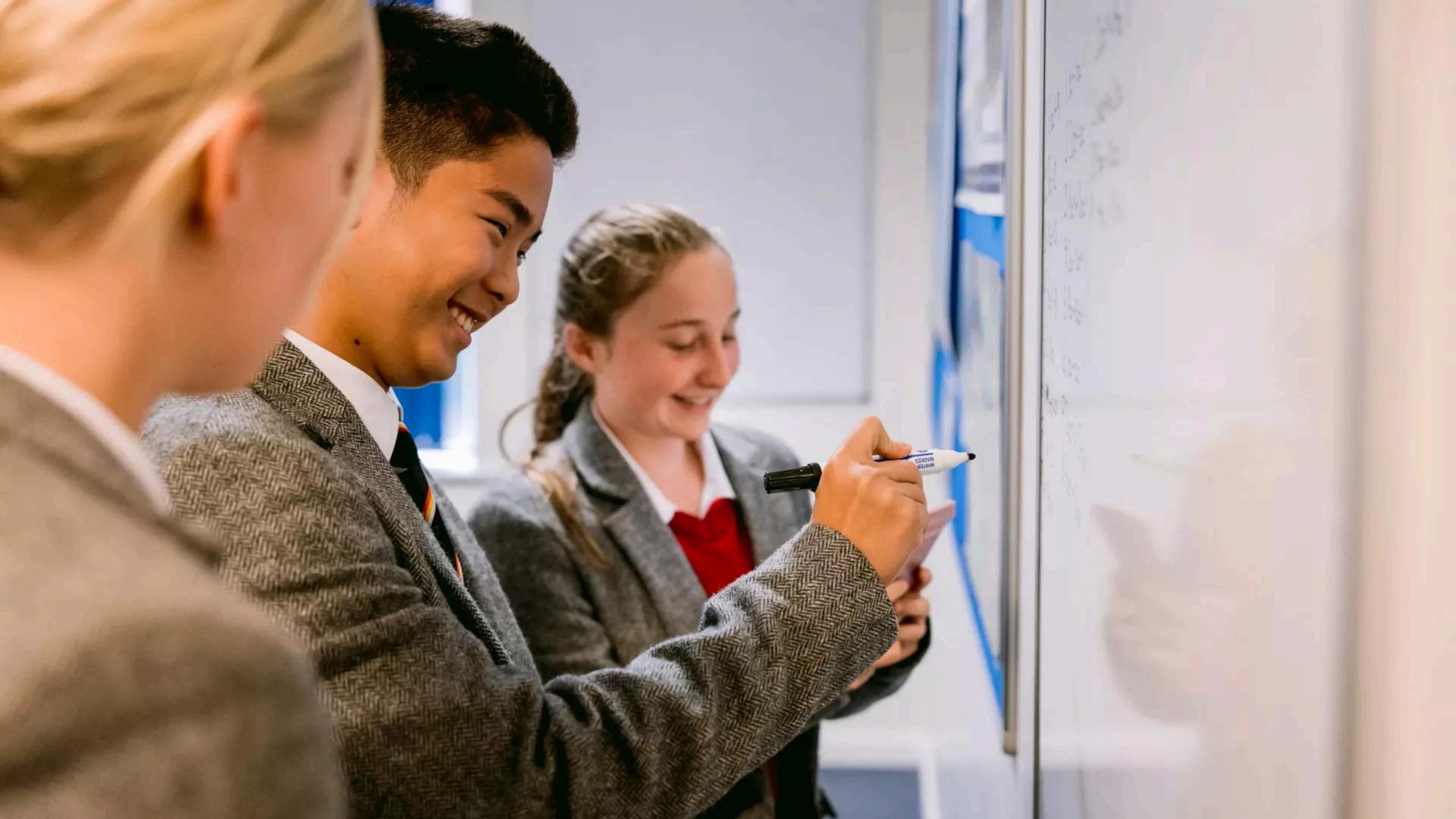
What Do We Study?
Germany 1890-1945 – From democracy to dictatorship.
Conflict & Tension in Asia, 1950-1975 – The Korean and Vietnam Wars.
Britain: Migration, Empires & People (c.790–Present) How migration shaped Britain.
Elizabethan England (1568-1603) – The politics, culture, and challenges of Elizabeth’s reign.
How Is It Examined?
Two exam papers at the end of 5th Form. Emphasis on source analysis, evaluation, and structured argumentation.




Music is a rich and rewarding subject that enhances sensory integration, attention, critical thinking, and emotional maturity. It builds confidence, selfdiscipline, and teamwork skills while also improving literacy, mathematics and cognitive development. Playing an instrument strengthens brain functions, benefiting both musical and academic learning. Studying music broadens cultural understanding and nurtures creativity, preparing students for careers in performance, composition, production and beyond.
The course is divided into three main areas:
Listening and Appraising (40%)
Pupils study eight set works across four Areas of Study: Instrumental Music 1700–1820, Vocal Music, Music for Stage and Screen and Fusions. They develop aural and analytical skills, learning to use musical vocabulary to compare styles, traditions and
Composing (30%)
Pupils develop composition skills in a variety of musical styles. They are encouraged to explore their own creative ideas using music software such as Logic and Sibelius. For assessment, they submit two compositions, with a combined minimum duration of three minutes.
Performing (30%)
Pupils perform as both a soloist and as part of an ensemble. They should have at least three years of experience on their primary instrument or be around Grade 3 standard before starting the course. For assessment, they submit two recordings: one solo performance and one ensemble performance, assessed on technical control, expression, interpretation and accuracy.
Listening and Appraising (40%) – A 1¾ hour written listening exam assessing knowledge of set works, musical elements and contextual understanding.
Composing (30%) – Coursework submission of two compositions, marked on creativity, structure and technical control.
Performing (30%) – Coursework submission of solo and ensemble performances, assessed on fluency, accuracy and musical expression.



EXAM BOARD: AQA
Why study this subject?
PE equips students with knowledge and skills to enhance their sporting performance while deepening their understanding of the societal impact of sport and the benefits of physical activity. It integrates multiple academic disciplines and offers the chance to develop across a variety of sports Pupils will develop a deeper understanding of what it takes to play sport at a high level and also what they can do to improve themselves in the sports they love.
The GCSE course consists of three modules: Paper 1 covers the human body's functions during physical activity, physiological adaptations from training and diet, data analysis skills, and the principles of training to optimise performance. This is worth 30% of the final grade
Paper 2 explores the social, cultural and psychological influences on participation in sport, the impact of commercialisation and media, and the health benefits of physical activity. This is worth 30% of the final grade.
Practical Assessment assesses students in three practical activities and a performance analysis task, where they demonstrate technical skills, tactics and knowledge of rules The pupils are assessed in one team, one individual sport and then a free choice. This is worth 30% of the final grade.
Coursework - Pupils will demonstrate their knowledge of their sport, while evaluating their own performance to create an action plan for improvement. This is worth 10% of the final grade.
What we study at GCSE?
Paper 1: Anatomy, physiology, movement analysis and physical training.
Paper 2: Sports psychology, socio-cultural influences and health and fitness.
Practical Performance: Students are assessed in three sports of their choice.
How is it examined?
Two written exams (60%)
Practical performance and coursework (40%)
PE is perfect for students who enjoy sport, fitness, and understanding how the body works. It explores the science behind movement, sports psychology, and the role of sport in society. If you are passionate about health, training, and performance, PE offers a handson and engaging learning experience.


Why study Religion & Philosophy?
This course is for those who are seeking thought provoking questions instead of easy answers. You will have the opportunity to discuss, reflect, and engage with tough questions that face both religious believers and sceptics. You will learn how to structure your arguments effectively and how to engage with perspectives that differ from your own. You will develop your ability to think and communicate clearly, and to analyse and evaluate chains of reasoning. These skills will help you navigate the complexities of the modern world wherever your future studies and career choices may take you.
What will you study at GCSE?"
The course followed is 'AQA GCSE Religious Studies A'. The two main religions studied are Christianity and Islam, each of which comprises 25% of the course. Philosophical and ethical themes make up 50% of the course.
Here are just a few of the profound and thought provoking questions that you will explore:
Is forgiveness and salvation possible for everyone?
Why is there evil and suffering in the world?
What happens when we die?
Does God answer prayers?
Is our future decided by fate or free will?
Does science disprove religious belief?
Why is abortion so controversial?
Is it wrong to be rich when others are poor?
Why do people commit crime and can criminals change their ways?
Is it ever right to go to war?
How is it examined?
There are two final exam papers:
The study of religions: Christianity and Islam 1.
Thematic studies: Philosophy and Ethics 2.
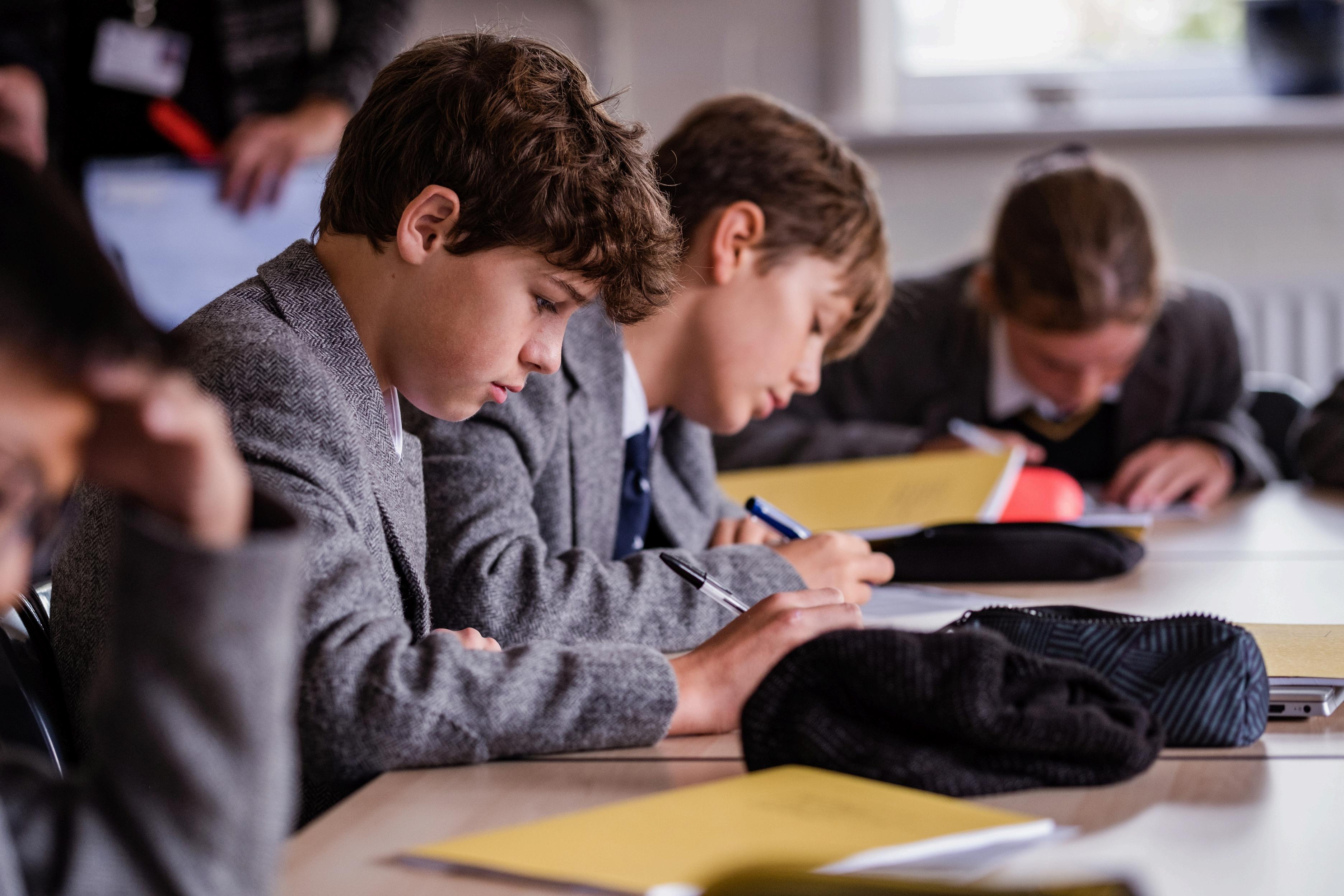
Each paper lasts for 1¾ hours and is divided into four topics. For each topic there will be a series of shorter questions to assess knowledge and understanding, followed by one essay question assessing your evaluation of different views and your ability to present persuasive arguments in support of your own conclusion




EXAM BOARD: EDEXCEL


We recognise that a number of our pupils are keen to challenge themselves academically. In addition to running departmental stretch and challenge activities and year-group activities within our ‘Aiming High’ programme, we also offer Enrichment GCSEs. If you would like further details, please talk to Mr Hamilton (Classical Greek) and Dr Haydock (Astronomy). These GCSEs take place outside the normal curriculum.
Astronomy is an enrichment GCSE, which means that it would be studied in addition to the normal GCSE load. It is not a subject that can be chosen to replace a GCSE. For thousands of years, humans have been looking into the skies above and wondered at their mysteries and powers. Most people are still fascinated by the night sky and are interested in stories about our continuing exploration of our Solar System and the Universe. This course builds on that interest and gives an introduction to astronomy. The course is split into 16 topics, split over two papers.
9. Exploring the Moon
10. Solar Astronomy
11. Exploring the Solar System
12. Formation of planetary systems
13. Exploring starlight
14. Stellar evolution
15. Our place in the Galaxy
16. Cosmology
1. Planet Earth
2. The Lunar Disc
3. The Earth-Moon-Sun cycle
4. Time and the Earth-Moon-Sun cycle
5. Solar System observation
6. Celestial observations
7. Early models of the Solar System
8. Planetary motion and gravity.
Both papers are assessed with a 100-mark paper, which is 1¾ hours long. As well as the exams, the students are required to complete two mandatory observations, one unaided (without a telescope) and one aided.


Classical Greek is an enrichment GCSE, which means that it would be studied in addition to the normal GCSE load. It is not a subject that can be chosen to replace a GCSE. Any pupil in the current 3rd Form or above with a genuine interest in learning a Classical language can take Classical Greek. This subject is taught off the main timetable as an additional subject.
Why study Greek for GCSE?
Like Latin, Greek commands respect from universities and employers alike as it shows that a student can think clearly as well as learn.
The study of Classical Greek provides students with an authentic insight into the values, culture and society of the ancient world.
Learning the literature helps develop critical, analytical and reflective skills by evaluating evidence from a range of original sources.
Students are given the opportunity to develop linguistic skills which are applicable to their studies of English and other languages.
The course provides a solid preparation for those wishing to progress to Classical subjects at a higher level.
What does the GCSE exam consist of?
Paper 1: Translation of extracts of unseen Greek based on mythological or historical themes.
Paper 2: Questions on prepared Greek prose texts. We read extracts from Herodotus or Lucian and evaluate, analyse and respond to their work.
Paper 3: Questions on prepared Greek verse texts.
Students read poetry including Homer and Euripides and pupils are able to show their appreciation of the author’s style and literary effects


Z a n e t a s , S i x t h F o r m
C e n t r e


Lord Wandsworth College
Long Sutton, Hook, Hampshire,
RG29 1TA W W W .

